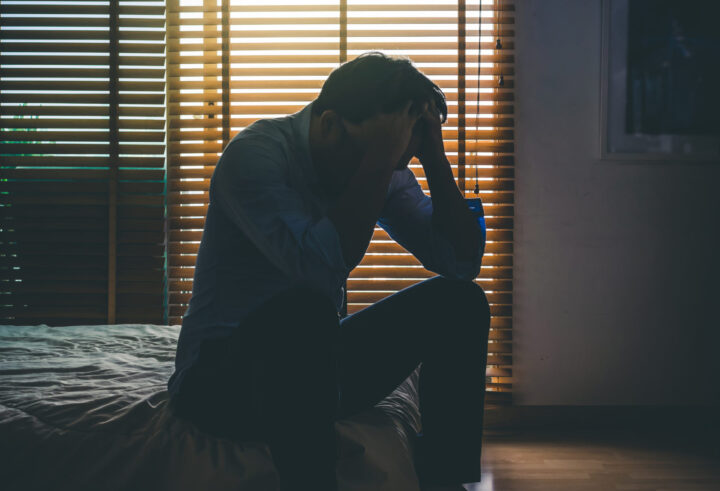Tiredness can make even the simplest tasks feel overwhelming and exhausting. But why does it make you feel so tired? In this article, I will explore the connection between depression and fatigue, as well as the science behind depression-induced fatigue.
Depression is a mood disorder that affects millions of people worldwide. Symptoms include feelings of sadness, hopelessness, and loss of interest in activities that were once enjoyable. But it can also cause physical symptoms, such as fatigue. It is a feeling of extreme tiredness and lack of energy that can make it difficult to carry out daily activities.
It can be especially debilitating, as it can make it hard to get out of bed, concentrate, and even complete simple tasks.
The Connection Between Both of Them
There is a strong connection between both of them. In fact, Fatigue is one of the most common symptoms. Studies have shown that people with depression are four times more likely to experience this than people without any mental health disorder. The exact cause of depression-induced fatigue is not fully understood, but it is believed to be related to changes in brain chemistry and hormone levels.
When a person is depressed, their brain chemistry is altered. The levels of neurotransmitters, such as serotonin and dopamine, are often imbalanced. These neurotransmitters are responsible for regulating mood, sleep, and energy levels. When their levels are disrupted, it can lead to feelings of tiredness and lethargy.

The Science Behind Tiredness Due to Depressive Behavior
There is a growing body of research that is exploring the science behind depression-induced fatigue. One study found that people may have reduced activity in the frontal lobes of the brain, which are responsible for executive functions such as decision-making, planning, and problem-solving.
Another study found that people with stress have higher levels of inflammatory markers in their blood. Inflammation is a natural response of the immune system to infection or injury, but when it becomes chronic, it can lead to a range of health problems.
Role of Stress and Cortisol in Exhaustion
The role of stress and cortisol in exhaustion is significant. When a person experiences chronic stress, the body releases cortisol, a hormone that helps regulate the body’s response to stress.
However, prolonged exposure to high levels of cortisol can have detrimental effects on the body, including exhaustion. Cortisol can disrupt normal sleep patterns, leading to fatigue and difficulty in obtaining restorative sleep.
Moreover, chronic stress can drain mental and physical energy, making individuals feel constantly tired and worn out. The continuous activation of the body’s stress response system can contribute to a cycle of fatigue and stress, creating a challenging environment for individuals struggling with exhaustion and its underlying causes.
Managing stress and finding healthy coping mechanisms are crucial in combating exhaustion caused by stress and cortisol.
Factors That Contribute

There are several factors that can contribute to fatigue in depression. These include:
Sleep Disturbances
People with depression often have difficulty sleeping. They may have trouble falling asleep, staying asleep, or waking up too early.
Lack of Physical Activity
It can make it difficult to engage in physical activity, which can lead to a sedentary lifestyle. Lack of physical activity can contribute to feelings of lethargy.
Poor Nutrition
People with a depressive disorder often have poor nutrition habits. They may skip meals, eat unhealthy foods, or have a poor appetite. Poor nutrition can lead to feelings of tiredness and lack of energy.
Physical Symptoms
Depression-induced fatigue can cause a range of physical symptoms, including:
Muscle Weakness
Feeling weak can make it difficult to engage in physical activity, which can lead to muscle weakness.
Headaches
It can cause headaches and migraines.
Digestive Problems
People with depression-induced fatigue may experience digestive problems, such as constipation, diarrhea, or nausea.
Coping Strategies

There are several coping strategies that can help manage depression-induced fatigue, including:
Rest and Relaxation
Rest and relaxation are essential for managing this disorder. Taking breaks throughout the day and engaging in relaxation techniques, such as meditation or deep breathing, can help reduce feelings of fatigue.
Exercise
Exercise is an effective way to combat depression-induced fatigue. Even light exercise, such as walking or yoga, can help boost energy levels and improve mood.
Nutrition
Eating a healthy, balanced diet can help combat the disorder. Avoiding sugary and processed foods and eating plenty of fruits, vegetables, and lean protein can help boost energy levels.
Treatment Options
There are several treatment options for this mental health disorder, including:
Antidepressant Medication
Antidepressant medication can help improve mood and reduce symptoms.
Talk Therapy
Talk therapy, such as cognitive-behavioral therapy (CBT), can help people and learn coping strategies and improve their mood.
Light Therapy
Light therapy, which involves exposure to bright light, can help regulate sleep patterns and improve mood in people with this.
Lifestyle Changes

In addition to coping strategies and treatment options, there are several lifestyle changes that can help:
Getting Enough Sleep
Getting enough sleep is essential for managing this disorder. People with depression should aim for 7-9 hours of sleep each night.
Limiting Caffeine and Alcohol
Caffeine and alcohol can disrupt sleep and contribute to feelings of tiredness
Establishing a Routine
Establishing a routine can help people and they will feel more in control and reduce feelings of fatigue. This can include setting a regular sleep schedule, eating meals at the same time each day, and engaging in regular exercise.
Seeking Professional Help
If you are experiencing depression-induced fatigue, it is important to seek professional help. Professional counseling can help you develop coping strategies, explore treatment options, and provide support as you work to manage your symptoms.
Conclusion and Hope for Recovery
Depression-induced fatigue can be a debilitating symptom.
However, with the right treatment and support, it is possible to manage and overcome.
By understanding the connection between depression and tiredness, exploring coping strategies and treatment options, and making lifestyle changes, people with depression can improve their energy levels and regain a sense of control over their lives.




